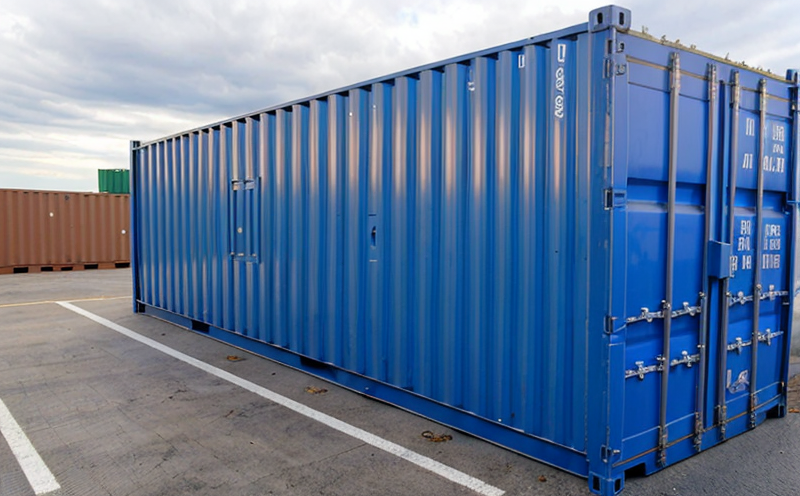USP 661 Plastic Storage Containers Quality Testing
The United States Pharmacopeia (USP) Chapter 661 outlines specific requirements and tests to ensure the quality, safety, and efficacy of plastic storage containers used in pharmaceutical applications. This service is pivotal for ensuring that these containers do not leach harmful substances into drug products, which could compromise patient health and compliance with regulatory standards.
The testing process involves a series of rigorous evaluations aimed at assessing the physical properties, chemical compatibility, and integrity of plastic storage containers. The primary focus is on preventing contamination from the container to the stored material. This service ensures that every storage container meets stringent USP guidelines, thereby safeguarding public health.
The testing protocol covers a wide range of parameters including, but not limited to, physical strength, chemical resistance, and compatibility with various pharmaceutical solutions. Each step in this process is meticulously designed to detect potential issues early on, ensuring that only the highest quality containers are approved for use.
Physical strength tests assess the durability of the container under normal usage conditions. This includes compression testing to evaluate how well the container holds its shape and withstands pressure without deforming or breaking. Additionally, tensile strength tests determine the maximum force required to break the container along a given direction.
Chemical resistance is another critical aspect of this service. It involves exposing the plastic containers to various chemicals commonly used in pharmaceutical manufacturing processes. These include solvents like acetone and ethanol, as well as active drug substances. The goal here is to ensure that no harmful materials leach into the stored substance during use.
Compatibility testing ensures that the container does not react adversely with the contents it will hold. This includes assessing whether the container can be used safely with different types of pharmaceutical solutions, from aqueous solutions to highly acidic or basic compounds. Compatibility tests are essential for ensuring long-term stability and safety of the stored materials.
The testing process also includes visual inspections to catch any defects that might not be apparent through mechanical tests alone. These defects could include cracks, bubbles, or uneven surfaces which could compromise the integrity of the container over time.
Once all these tests are completed successfully, detailed reports are generated providing comprehensive data on each aspect tested. This report serves as a crucial document for regulatory bodies and internal quality control teams to ensure compliance with USP 661 standards.
The results of such testing are not only important for pharmaceutical companies but also beneficial for medical professionals who rely on these containers for safe storage and handling of medications. By adhering strictly to USP guidelines, we contribute significantly towards maintaining the highest levels of patient safety and efficacy in healthcare practices.
Applied Standards
The primary standard applied in our USP 661 plastic storage container testing service is USP Chapter 661, which provides comprehensive guidelines for ensuring the quality and safety of plastic containers used in pharmaceutical applications. This chapter sets out stringent requirements covering various aspects such as chemical compatibility, physical strength, and integrity.
In addition to USP standards, we also adhere to other relevant international standards like ISO 11878:2016 for polyethylene terephthalate (PET) containers and EN 14350-1 for plastic bottles used in medical applications. These additional standards help ensure that our testing protocols meet the highest global regulatory expectations.
Our laboratory employs state-of-the-art equipment calibrated to these international norms, ensuring accurate and reliable results every time. By leveraging this expertise, we provide clients with confidence that their products comply fully with all necessary regulations.
Scope and Methodology
The scope of our USP 661 plastic storage container testing service encompasses a comprehensive range of physical and chemical tests aimed at evaluating the quality, safety, and suitability of these containers for pharmaceutical use. The methodology involves several key steps designed to assess multiple critical parameters:
- Visual Inspection: Initial examination to identify any visible defects such as cracks or uneven surfaces.
- Physical Strength Testing: Evaluating the container's ability to withstand pressure and deformation using compression and tensile strength tests.
- Chemical Resistance Testing: Exposing samples to various chemicals used in pharmaceutical manufacturing processes, including solvents like acetone and ethanol, as well as active drug substances.
- Compatibility Testing: Assessing the container's interaction with different types of pharmaceutical solutions to ensure no harmful materials leach into stored contents.
Each step is meticulously documented, providing clients with detailed reports that serve as a testament to the quality and safety of their products. Our approach ensures compliance with not only USP 661 but also other relevant international standards, enhancing overall product reliability and acceptance in the market.
International Acceptance and Recognition
The testing protocols outlined in USP Chapter 661 are widely recognized and accepted across numerous countries worldwide. This global recognition underscores the importance of adhering to these standards for manufacturers aiming to comply with international regulations.
Countries such as the United Kingdom, Germany, France, and various others have adopted or referenced USP guidelines in their own regulatory frameworks. For instance, the UK's MHRA (Medicines and Healthcare Products Regulatory Authority) recognizes USP standards as authoritative references for quality assurance in pharmaceutical manufacturing.
Similarly, European Union directives often incorporate elements of USP testing protocols to ensure consistency and safety across member states. In Asia, countries like Japan and Singapore also reference these standards when approving new drug applications involving plastic storage containers.
The widespread adoption of USP 661 highlights its significance in the global pharmaceutical industry. Compliance with these standards not only ensures regulatory approval but also enhances brand reputation by demonstrating a commitment to excellence in quality control.





